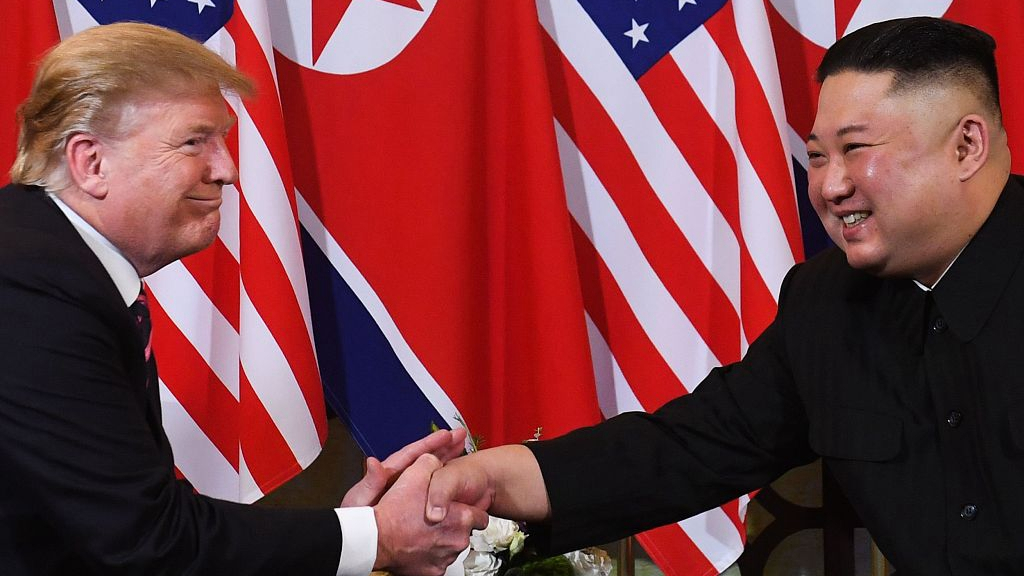Over a month after the abrupt halt of the Hanoi Summit between U.S. President Donald Trump and Democratic People's Republic of Korea's leader Kim Jong Un, the two sides haven't met again on any levels but did have some interactions to show each sides' goodwill.
Republic of Korea President
Moon Jae-in is heading to the U.S. to meet Trump on Wednesday and said he will work for an early resumption of dialogue while Pompeo last week also said he was confident
there would be a third summit between Trump and Kim soon.Read more:
When responding to the recent situation on Korean Peninsula, China's Foreign Ministry Spokesperson Geng Shuang last week also said both the DPRK and the U.S. have expressed their willingness to maintain dialogue after the Hanoi summit.
Although the U.S. and the DPRK are still bonded on the definition of denuclearization and if U.S. can relieve sanctions to the DPRK, as Geng pointed out, relevant parties need to "set reasonable expectations, take phased and synchronized steps with a package plan, and ensure the sustainable and irreversible process of denuclearization and political settlement on the Peninsula."
'Trump administration position has not hardened'
Stephen Biegun, Trump's special representative for DPRK, denied a hardening of the U.S. approach to the DPRK after the Hanoi summit in his first public remarks since the summit.
"We are not going to do denuclearization incrementally," Biegun said and added, "The president has been clear on that, and that is a position around which the U.S. government has complete unity."
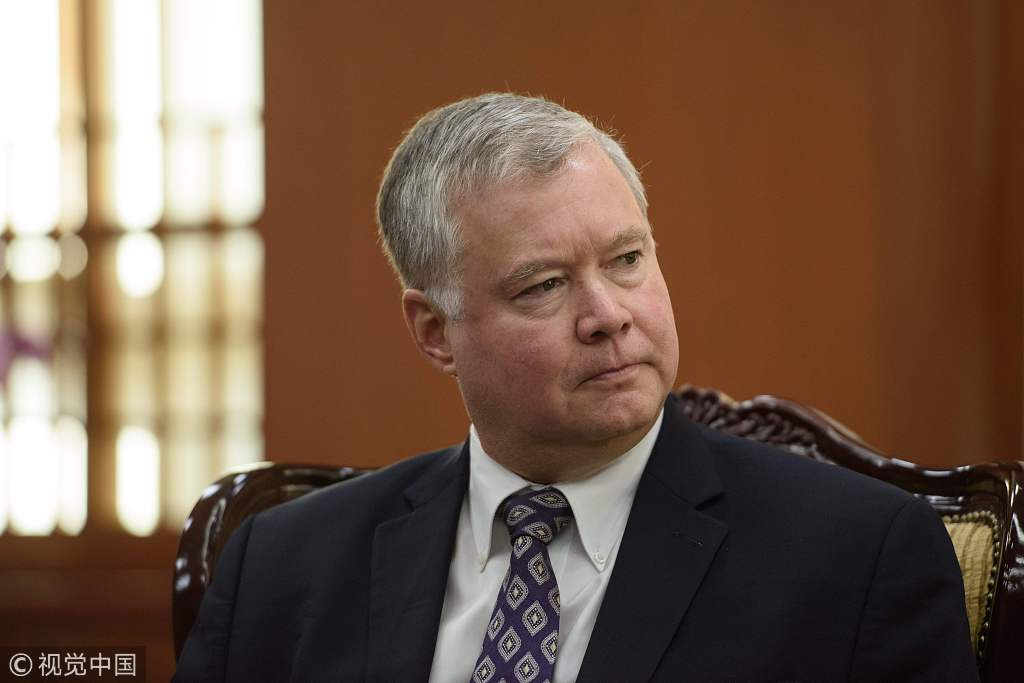
U.S. Special Representative for DPRK Stephen Biegun listens to ROK's Foreign Minister Kang Kyung-wha during their meeting at the foreign ministry in Seoul on February 9, 2019. /VCG Photo
U.S. Special Representative for DPRK Stephen Biegun listens to ROK's Foreign Minister Kang Kyung-wha during their meeting at the foreign ministry in Seoul on February 9, 2019. /VCG Photo
Top U.S. officials expressed goodwill to resume talks while also urging the DPRK to take substantial steps on denuclearization.
Pompeo last week in an interview said he hoped Kim would tell his people "it would be the right thing" for Pyongyang to give up its nuclear weapons during his speech to Supreme People's Assembly.
The top diplomat also said there had been further talks with the DPRK after the Hanoi summit adding that he is not disappointed with the summit and that all diplomatic channels remain open.
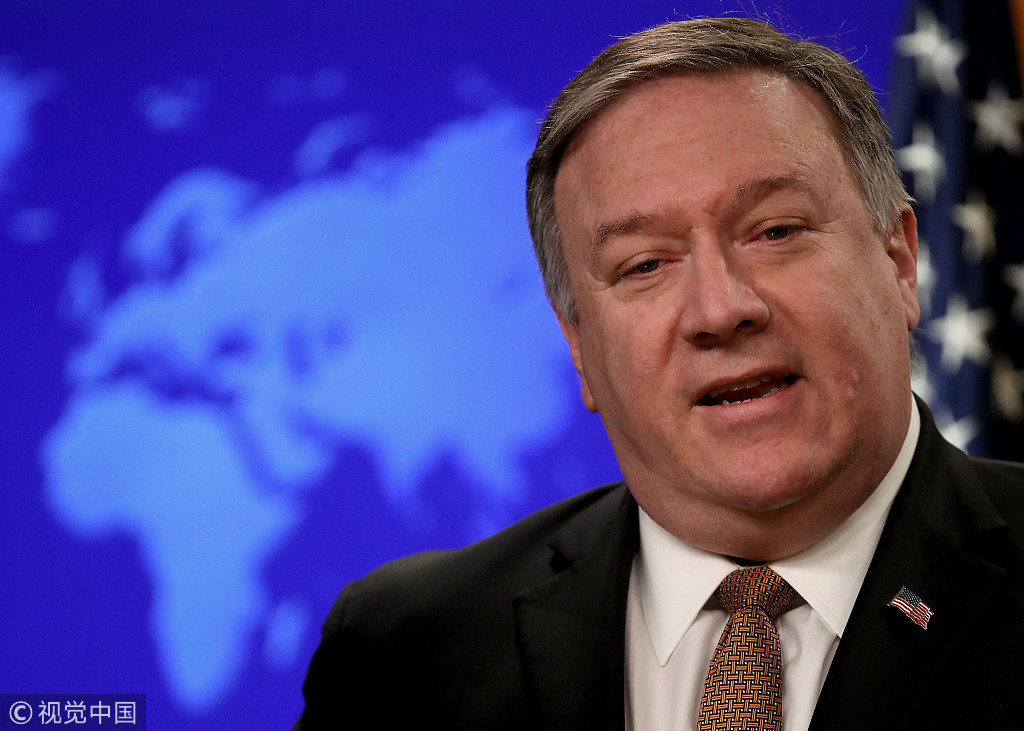
U.S. Secretary of State Mike Pompeo answers questions at the U.S. State Department in Washington, D.C., March 15, 2019. /VCG Photo
U.S. Secretary of State Mike Pompeo answers questions at the U.S. State Department in Washington, D.C., March 15, 2019. /VCG Photo
U.S. Ambassador to the ROK Harry Harris said on March 27 said the U.S. will reduce the scale of its military drill but stressing the window of opportunity (for DPRK-U.S. negotiations) would not be open forever.
He added all hope that diplomatic efforts can success but warning the DPRK can't rely on hope alone.
Three days after the Hanoi summit, the U.S. and the ROK announced to
halt annual large-scale Key Resolve and Foal Eagle series joint military exercises citing the reason of diplomatic efforts to "achieve complete denuclearization of the Korean Peninsula."
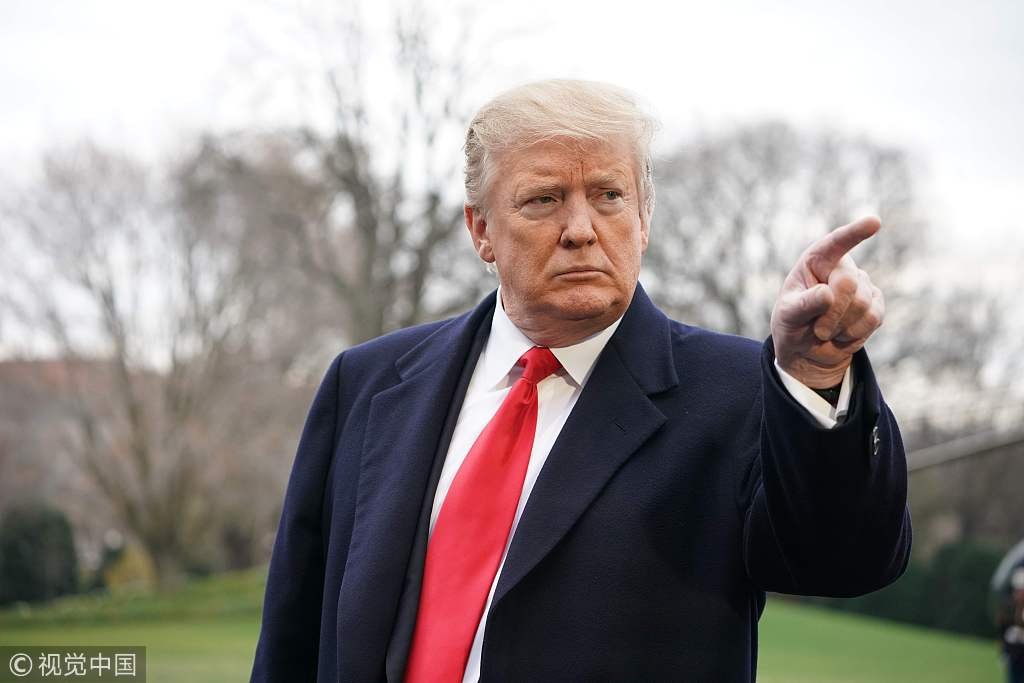
U.S. President Donald Trump speaks to the press before boarding Marine One as he departs from the South Lawn of the White House in Washington, D.C. on March 22, 2019. /VCG Photo
U.S. President Donald Trump speaks to the press before boarding Marine One as he departs from the South Lawn of the White House in Washington, D.C. on March 22, 2019. /VCG Photo
For Trump, he ordered the withdrawal of his own Treasury department announced DPRK-related sanctions in late March. White House spokeswoman Sarah Sanders explained the reason that "Trump likes Chairman Kim (Jong Un) and he doesn't think these sanctions will be necessary."
'No revolutionary tasks stand before improvement of economy'
Sander's remarks echoed DPRK Vice Foreign Minister Choe Son Hui's words earlier. When speaking to foreign reports and diplomats in Pyongyang on March 15, she said the chemistry between Kim and Trump "is mysteriously wonderful."
"No revolutionary tasks stand before us other than the improvement of the economy and people's daily lives." This is the first official message sent from Kim to his public following the Hanoi summit.
The KCNA published a letter from Kim to participants in the Second National Conference of Primary Information Workers of the Party in Pyongyang on March 6–7.
In the letter, Kim emphasized the need to concentrate all efforts of information and motivation on accelerating socialist economic construction.
As the country announced to adopt
the economic-focused strategy, only in April, Kim has inspected three major economic sites: Wonsan-Kalma coastal tourist area in Kangwon Province, the hot-spring spa in Yangdok County, South Pyongan Province and Samjiyon Blueberry Drink Factory in Samjiyon County.
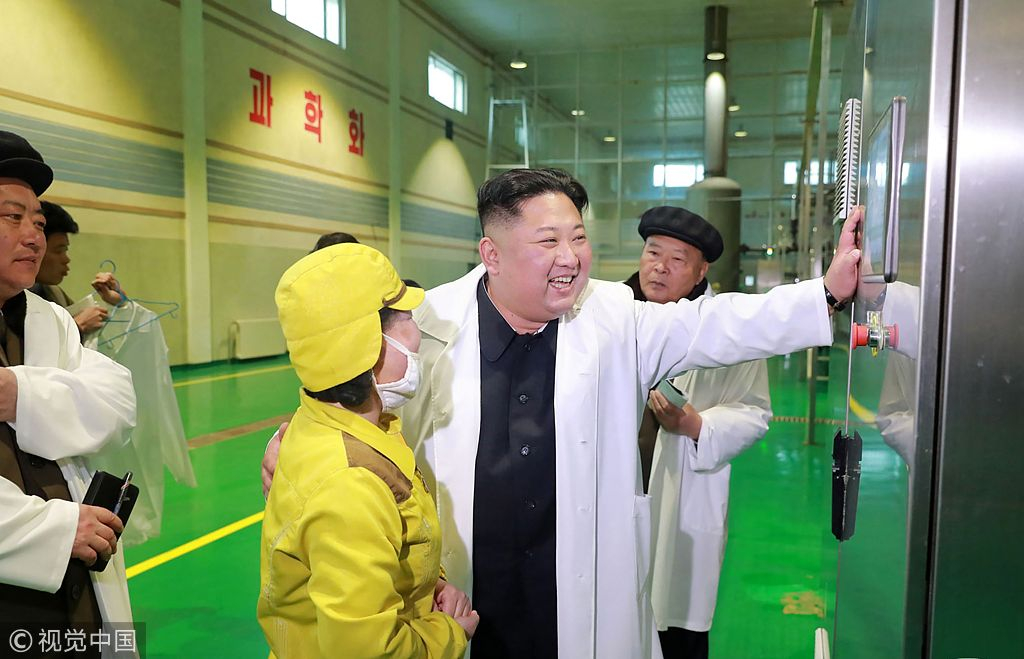
DPRK leader Kim Jong-Un (2nd R) inspects the Samjiyon Potato Farina Production Factory in Samjiyon County, April 4, 2019. /VCG Photo
DPRK leader Kim Jong-Un (2nd R) inspects the Samjiyon Potato Farina Production Factory in Samjiyon County, April 4, 2019. /VCG Photo
On Monday, Kim also expressed his "great satisfaction" at the newly refurbished Glitzy mall in Pyongyang.
Notably, Choe during the news conference also said people, including members of the military and officials in the military industry, had sent thousands of petition letters to Kim urging the leader not to give up the nuclear program but Kim still went to Hanoi to build trust.
Kim did build closer ties to his army. KCNA reported Kim met military officials on March 25 to 26 saying, "National power has been advanced incessantly in a harsh environment."
According to KCNA, Kim believed there “will be nothing to fear…because reliable comrades in revolutionary military uniform who guard the party, the fatherland, and the people stand beside him.”
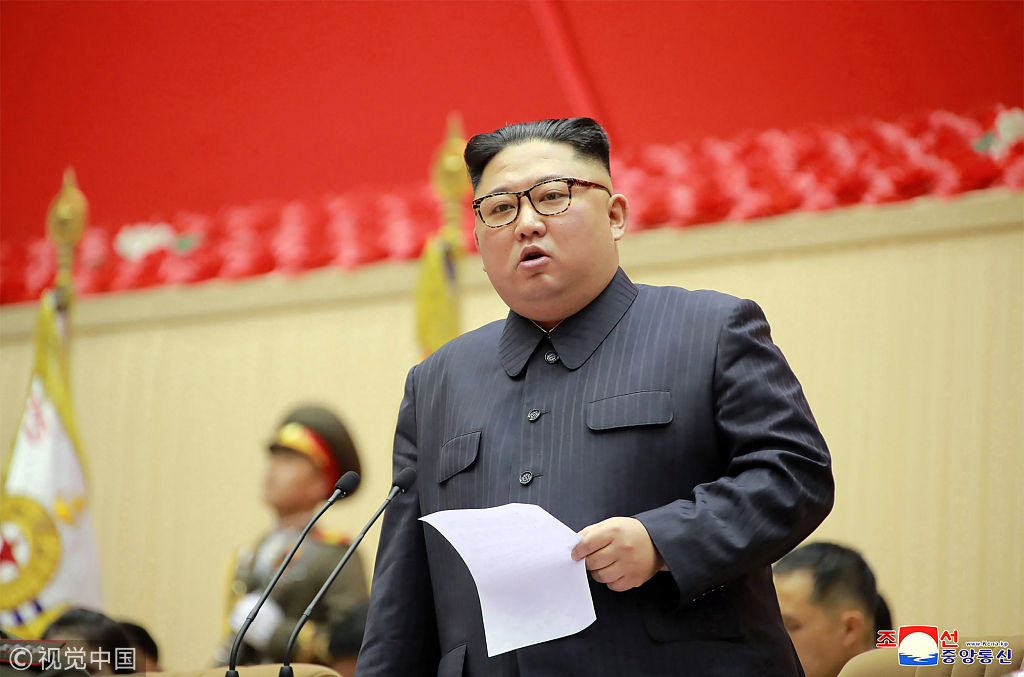
DPRK leader Kim Jong Un speaks at the 5th meeting of company leaders and political instructors of the Korean People's Army (KPA) in Pyongyang on March 27, 2019. /VCG Photo
DPRK leader Kim Jong Un speaks at the 5th meeting of company leaders and political instructors of the Korean People's Army (KPA) in Pyongyang on March 27, 2019. /VCG Photo
The DPRK leader also said he wanted to meet with his “beloved soldiers” who he “always missed even during his long journey to a foreign country” referring to his long trip to Vietnam.
The DPRK and ROK have maintained interaction on a certain degree in the past month but there was a small episode when DPRK officials left the liaison office on March 22 but returned three days later.

